Environment Agency poisons Hampshire lakes to kill invasive fish
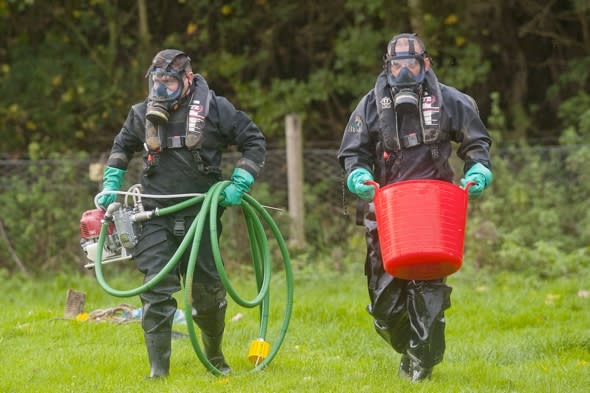
Lakes at a fishery in Hampshire have been filled with poison in a bid to wipe out thousands of Asian gudgeon that can cause the death of salmon and trout.
Topmouth Gudgeon - a tiny freshwater fish measuring just 2cm in size - have taken over at a lake near Romsey, Hants.
It is believed the invasive species entered British waterways in the 1980s but only recently became widespread.
They are normally found in Asia and are believed to have entered the UK via the trade in ornamental fish.
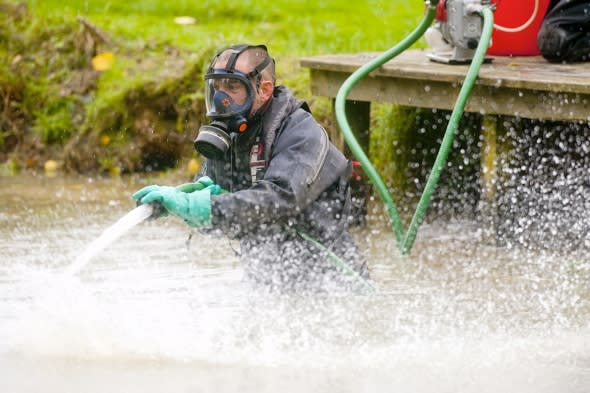
Graham Mabey, owner of the FLE Fishery, contacted the Environment Agency when the gudgeon infested his lakes.
On Monday, EA workers were adding poisons to the water to kill off the invasive fish.
Mr Mabey's FLE fishery will remain open for business during the treatment, with one lake being treated at a time.
The agency is removing as many fish as possible from the lake before putting in the piscicide Rotenone.
Rotenone is a naturally occurring organic substance found in the roots of tropical plants in the bean family.
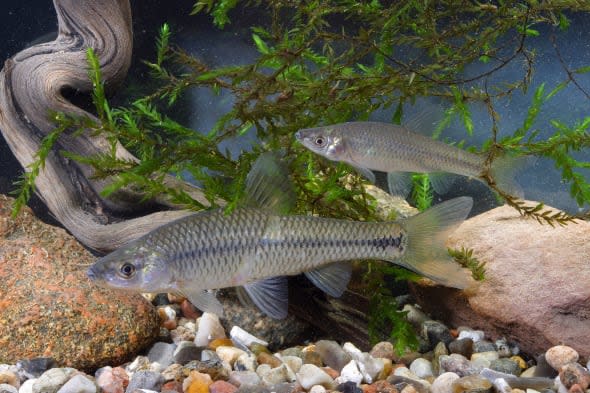
The chemical breaks down when exposed to light, heat and oxygen.
When applied to water, it will break down to carbon dioxide and water in a few weeks depending on conditions, leaving no chemicals in the water afterwards.
The project at the fishery - which is known for carp fishing, match fishing and pole fishing - will be finished by April 2014.
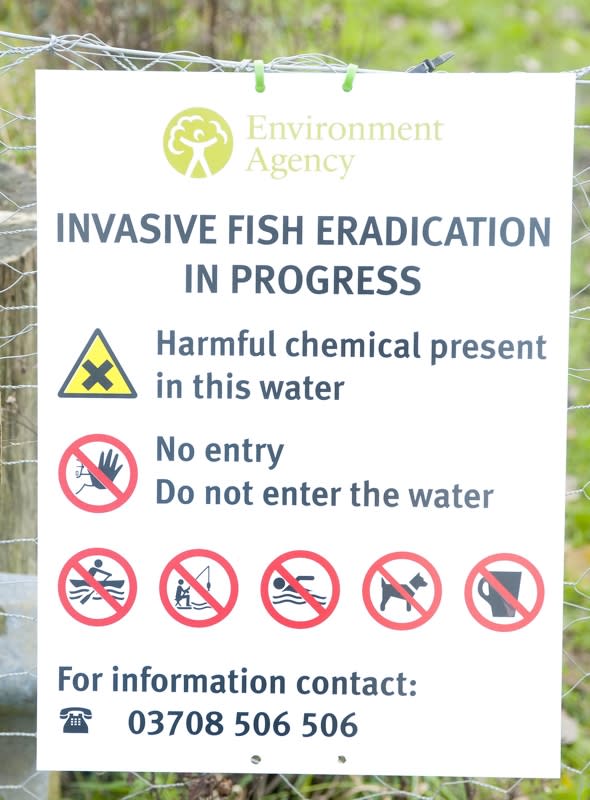
Mr Mabey told Solent News and Rex Features: "The Topmouth Gudgeon came from Asia. They're very small fish and we did not really notice them to start with.
"We're not exactly sure how they came over to our waters, probably through the ornamental trade, going back quite a few years now.
"Unfortunately the little fellas have found their way into the water.
"When we found out exactly what they were I contacted the Environment Agency and asked for their advice on what to do with them.
"They are small fish, but they are very predatory and eat fish eggs. They breed four times a year which obviously causes a problem in terms of over population of the water body, which means the water quality goes down.
"If left untreated, it can leave a major problem for the water body so that is why we are taking action."
The fishery works closely with a local agricultural college, Sparsholt College in Winchester, Hants.
Mr Mabey added: "Sparsholt removed all of the fish out of the affected site and moved them to the top lake.
"The treatment will actually take place in the water. We are doing half of the site first. The poison will go into the water body on half of the site today, for about eight weeks.
"And in eight weeks' time, we will remove all of the other fish out of the other half of the lake back into my canals and that will be open again for fishing.
"We anticipate the full site being open again in April and for the time being, half of the site is still open for fishing.
"It allows me to do a complete stock take of my fishery. It allows me to restock the fish to the lakes which I want them to go back into.
"It just allows me as a fishery owner to know exactly what is inside my water."
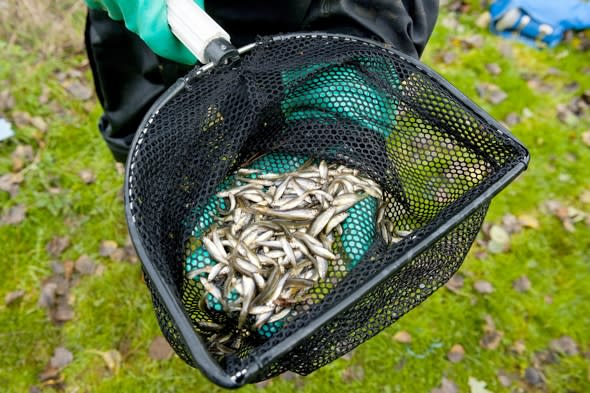
An Environment Agency spokesperson said: "The presence of Topmouth Gudgeon, a highly invasive non-native fish species, has been confirmed at a coarse fishery near Romsey, Hampshire.
"Topmouth Gudgeon are considered one of the most potentially damaging non-native fish species in Western Europe.
"The species represents a significant threat to the ecology and wildlife in our rivers and lakes throughout the country.
"They eat the eggs and larvae of native fish and out compete native fish for food and habitat.
"There is also evidence that they may carry the threat of new diseases and parasites that could affect our native species.
"We manage, control and, where necessary, eradicate invasive non-native fish to protect our aquatic environment and the valuable fisheries it supports.
"The Environment Agency is undertaking an eradication programme to remove them from the lake.
"Native fish species have been netted and quarantined and then a piscicide containing rotenone, will be applied to the water to kill the topmouth gudgeon population."
Related articles
Fisherman 'catches' 2ft crocodile in Hampshire lake
Man dies after using barbecue in camper van in Hampshire



